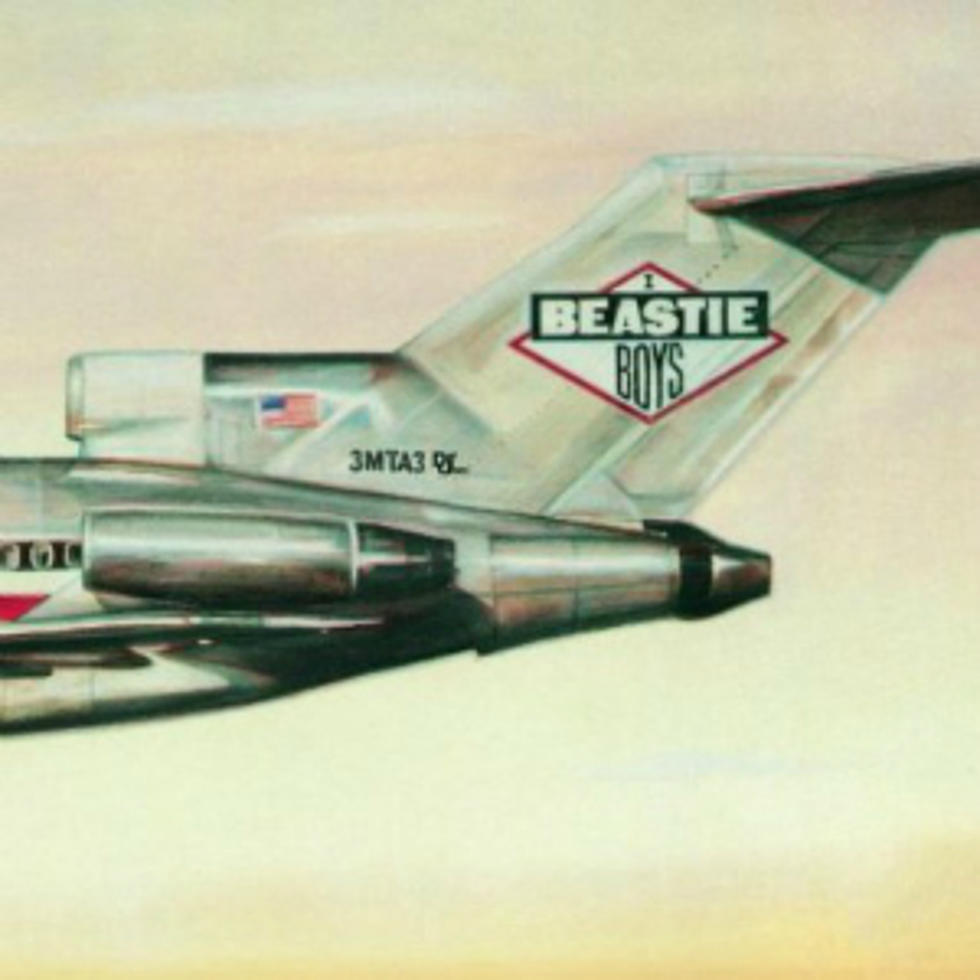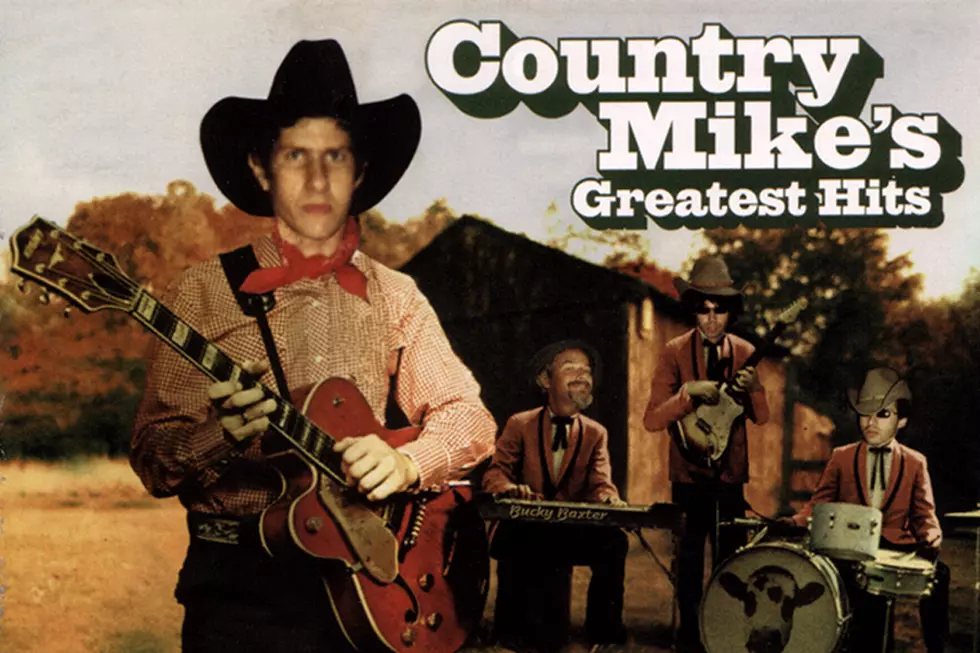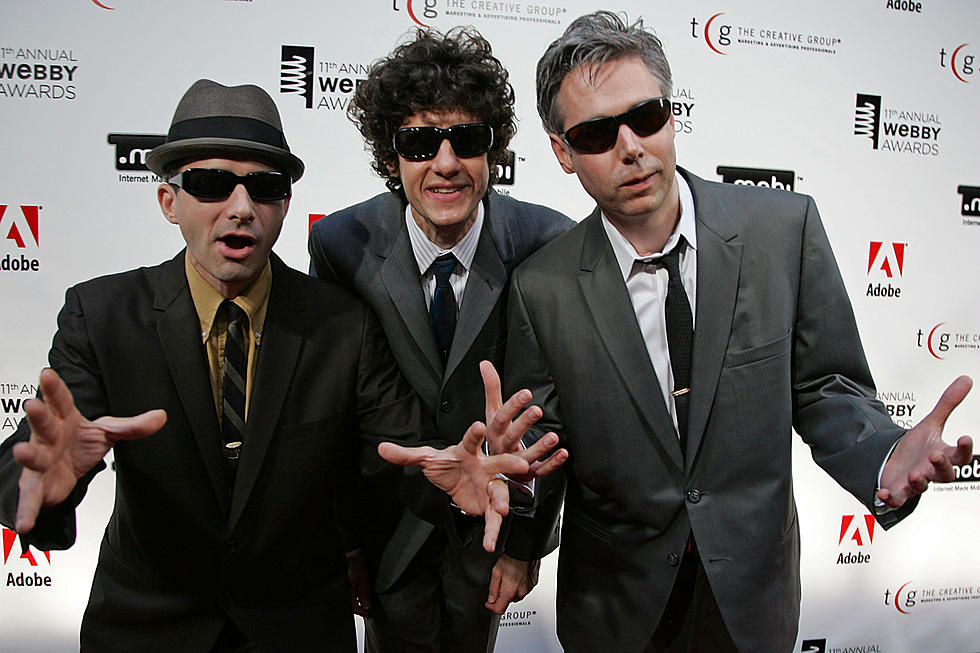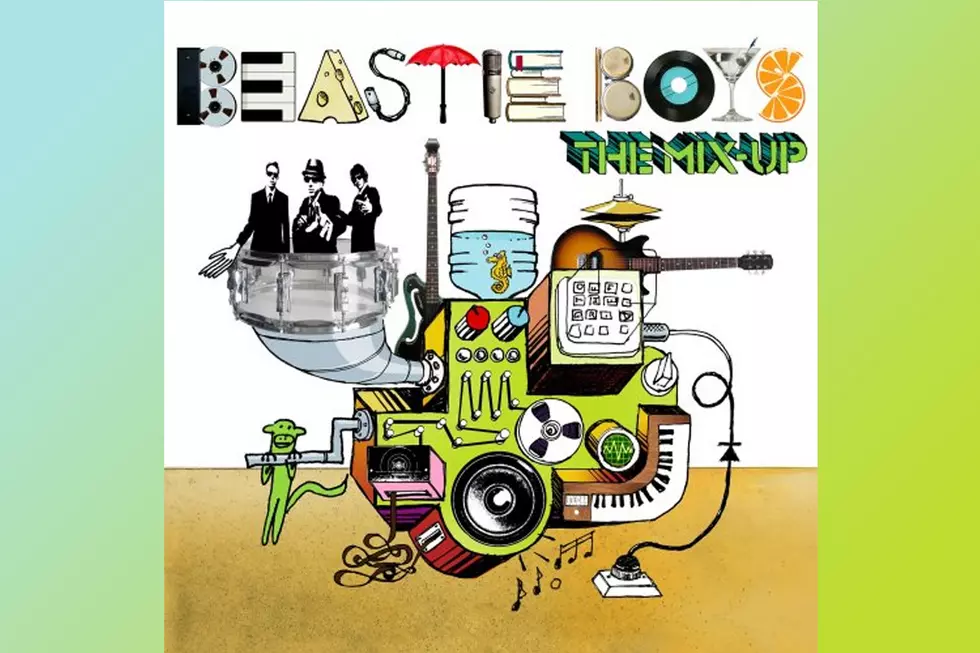
29 Years Ago: Beastie Boys Bridge the Rap and Rock Divide With ‘Licensed to Ill’
Well, now here's a little story I've got to tell about three bad brothers you know so well...
When Licensed to Ill dropped in November 1986, we hardly knew anything about those three bad brothers named Ad-Rock, MCA and Mike D. The most any average kid knew about the Beastie Boys were that they opened for Madonna's Virgin Tour in 1985. Ask a hip kid and he or she might have turned you onto "Cooky Puss," but that's about it. How quickly things change: Within three months of the album's release, the Beasties were platinum-selling superstars.
We take for granted their formula for musical domination today, but the rock and hip-hop worlds were oil and water in the early '80s. A local band out in L.A. was trying to change that, but nationally few took notice of the Red Hot Chili Peppers. John Lydon teamed up with Afrika Bambaataa for the dance floor classic "World Destruction" in '84, but there was no hint of the former Johnny Rotten in that infectious groove. No, if you rocked in the '80s, you didn't beatbox and you sure as hell didn't sample. The latter was like admitting that you had no talent or imagination.
That changed in summer 1986 when Run-D.M.C. and Aerosmith literally tore down the wall separating the two musical worlds with their "Walk This Way" mashup. It was the video of the summer, bringing hip-hop to middle America and (via Aerosmith's endorsement) inspired a whole generation of heshers to trade in their Chucks for laceless Adidas.
The man behind that mashup also happened to be Beastie Boys' first DJ and current (at the time of Licensed to Ill) producer and label head Rick Rubin. Like some kind of mad scientist, he would graft together three of his favorite things -- heavy metal, hip-hop and wrestling -- and give birth to a three-headed monster named the Beastie Boys.
But Rubin did not create the Beasties. They were already a well-established band on the New York City hardcore punk scene long before "Cooky Puss." However, the producer exerted tremendous influence on Licensed to Ill, which explains why the album is the anomaly in the band's catalog. Never again were they this brash and bratty, their beats so funk-free (with exception to the "Low Rider" powered "Slow Ride"). Rubin positioned the boys as bad guy wrestlers, busting through your wall not to bust out a chorus of "Walk This Way" but to drink your beer and steal your best porno mag.
The band were in trouble with rock purists from the opening bars of "Rhymin & Stealin" which lifted John Bonham's distinctive beat from Zeppelin's "When the Levee Breaks" and grafted Black Sabbath's "Sweet Leaf" to it. It was heresy, like the Iron Sheik burning an American Flag or some such. But while the purists booed the converted shuffled their Adidas down to the local mall and bought Licensed to Ill by the truckload.
Zep-heads got another slap in the face with "She's Crafty," which swiped Jimmy Page's riff from "The Ocean," and one more time with album closer "Time to Get Ill," which helped itself to a big slice of "Custard Pie." What the self-proclaimed guardians of the Zeppelin legacy didn't recognize was that these bratty little upstarts were driving a new generation of fans to the mighty Zep's catalog. Just as Aerosmith and James Brown enjoyed late career revivals courtesy of hip-hop, so did Led Zeppelin via Licensed to Ill's success. Led Zeppelin's hardcore fans may not have seen what was happening, but the band got it: In 1988, Robert Plant sampled his former band for the song "Tall Cool One."
The album's heavy metal crossovers weren't limited to samples. While Rubin was producing Licensed to Ill, he was also working on Reign in Blood – Slayer's metal masterpiece. Rubin brought Slayer guitarist Kerry King over to record a vicious lead for "No Sleep Till Brooklyn."
But not even Kerry King could sway the most hardcore mullets, not that it mattered: Licensed to Ill would eventually sell 10 million copies.
The album's monster single, of course, is "(You Gotta) Fight for Your Right (To Party!)," a song title even more absurd than Spinal Tap's "Tonight I'm Gonna Rock You Tonight." It's the most conventionally structured rock song on the album because it's the most glaring parody of songs like Twisted Sister's "I Wanna Rock." Even the video seemed to be a Twisted Sister parody.
For many, "You Gotta Fight" was the Rosetta Stone that allowed them to finally understand what Licensed To Ill was all about: fun, humor and satire. It was a party record, a celebration of stupidity. Once that divide was crossed, cuts like "Brass Monkey" could be appreciated based on their own merits rather than through the territorial prism of "keep your rap out of my rock."
It shouldn't have taken so much effort to get the humor; after all, the album cover depicts a giant joint masquerading as a crashed airliner, and "Girls" is the kind of novelty song one might have found on a Cheech and Chong album. Ad-Rock's best Jerry Lewis impersonation is on display in tracks like "She's Crafty." Licensed to Ill is a comedy record pretending it's a hip-hop record with heavy metal pretensions.
The years have been good to the album's reputation, showing up on "greatest albums" list at The Source and Rolling Stone among others, but Licensed to Ill sounds slightly dated three decades later. That's unavoidable given the album's place in hip-hop history. In terms of major label acceptance, radio play and multi-platinum sales, the latter half of '86 is like the Big Bang and Licensed to Ill is the 12-inch ball of black matter that exploded.
Worst to First: Every Beastie Boys Album Ranked
More From Diffuser.fm









